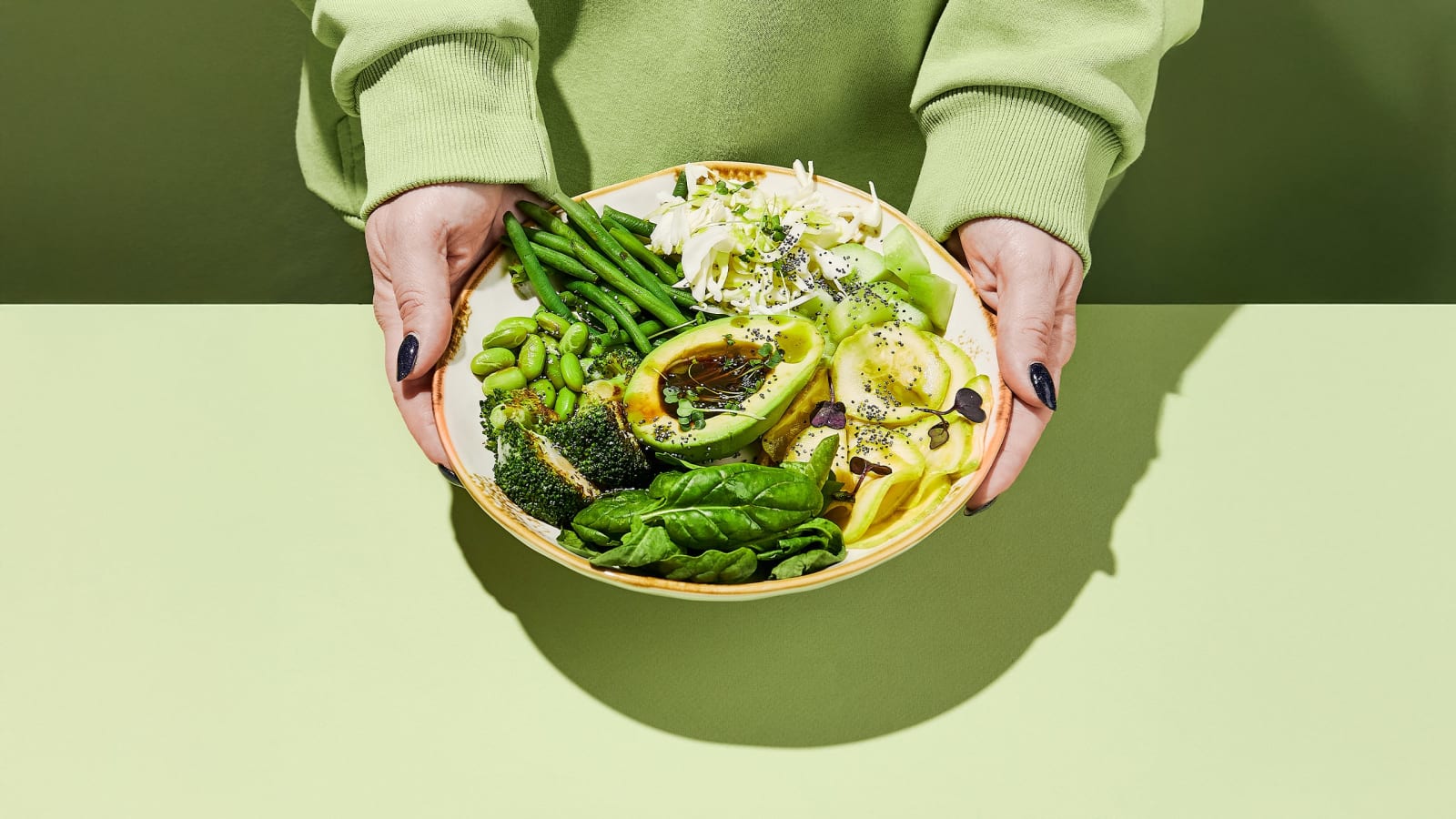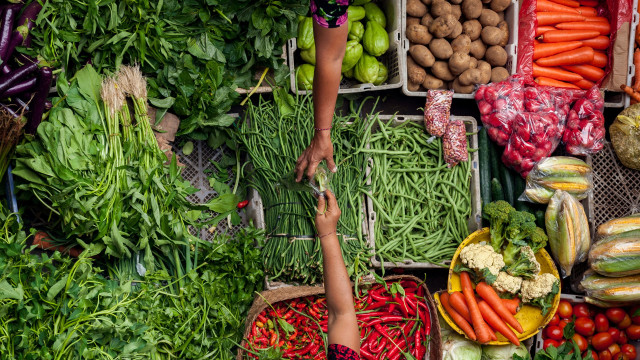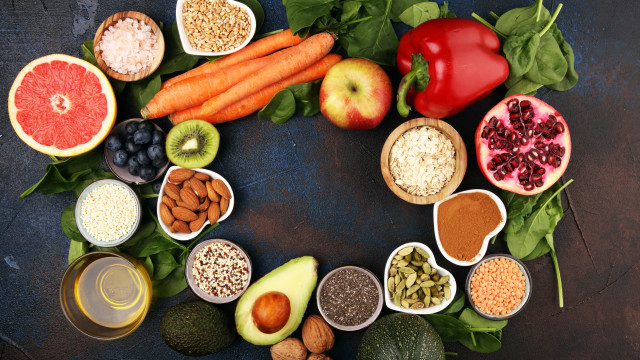Mindfulness for Every Meal

“You are what you eat.”
We have often heard this phrase — first coined in 1826 by Jean Anthelme Brillat-Savarin, a French lawyer — to mean if you eat good food, you will be healthy. We all understand the impact of food on our physical being; today this saying also highlights how our daily food habits can affect our emotions.
Food is not only a vital component to our survival, but also an attribute we can control. However, this is easier said than done. Through our lives, we build patterns and compulsions around food due to our emotional or physical upbringing. Eating patterns today are also shaped by societal conditioning through our social media feeds and advertisements. It may not always be easy to register the impact of this ubiquitous messaging in our day-to-day lives, and its influence on our eating behavior.
In the 2017 book, "The Taste of Well-Being: Sadhguru’s Insights For Your Gastronomics," spiritual guru Sadhguru Jaggi Vasudev mentions how consciousness is important in determining how food behaves in our system. He writes, “Let us say two people are eating food with the same level of nourishment and their health and absorption rates are about equal. One person eats the food with joy while the other simply eats it as nourishment. The one who eats with joy will need much less food and will get better nourishment than the other person.”
Over the years, several studies on the gut-brain axis and best-selling books like "Gut: The inside story of our Body’s most under-rated organ" by Guilia Enders have underlined this linkage of emotional and cognitive centers of the brain with digestive functions. A study titled "The Gut-Brain Axis: Interactions Between Enteric Microbiota, Central and Enteric Nervous Systems," published in the "Annals of Gastroenterology: Quarterly Publication of the Hellenic Society of Gastroenterology," reveals that there is a system of bi-directional communication, where thoughts and emotions influence the gut (e.g., microbiome, digestion), and in turn, the gut/microbiome influence the brain and central nervous system.
“Before I met my own spiritual teacher, I had a lot of compulsions around food. I would be thinking about food, planning my next meal all the time. Get fixated on where, what I am going to eat, when I am going to eat, how I am going to eat. Planning my whole day around meals, and it came to a point of being obsessive,” says Tulsi Chase, head of education & outreach at Sadhguru Center for a Conscious Planet at Beth Israel Deaconess Medical Center, Boston, who found a way to break this food compulsion through mindfulness.
“If I would get hungry, I noticed my emotions would be very volatile. If I would get hungry, I couldn’t manage myself to the best of my abilities.” Before choosing to make changes in food choices, it is necessary to be aware of your own reaction toward your meals. We find ourselves often on this tightrope of balancing our emotions and bodily hunger. “It was happening constantly, that it was a cycle I was doing it without awareness. I just was falling into the patterns without awareness,” says Chase. “I realized this is something I need to work on, how do I now cultivate consciousness around food and eating.”
How To Make Mindful Food Selections
Observe Closely — How a Food Reacts With Your Body
There is often a direct correlation to our energy levels after a meal. We may feel sluggish or weighed down after eating calorie-dense meal, more stimulated after a cup of coffee or tea, and energetic after we have a fruit juice or smoothie. This recall can help us know what we need for the day ahead.“I noticed when I ate food that was raw — nuts, seeds or legumes, Indian dal, and lentils it gave me more energy. If I ate processed food, or food that were heavy with cream and dairy or food that was kept for a few days ago or left over, those foods made me feel more lethargic. This was an indicator for me that these foods make me feel this way. I now know how it is going to affect my system,” says Chase.
Ask What Does Your Body Need Today?
To move away from habits and compulsions, and toward consciousness and awareness, we need to chart our body’s day-to-day requirements. Chase suggests we approach every meal with a fresh awareness. “You need to ask yourself, what does my system need today? What is my activity today? If I am going on a marathon, I need to eat different ingredients, or different amount. If I am going to be sitting in front of the computer, then the food that I need will be different. Maybe I need to eat lighter, foods that are fresh and energizing because I am sitting all day,” she says.
Set a ‘Meeting Time’ With Yourself
Learning to prioritize your meals can help you build a better mind-body connection. “When I don’t get time during the workday to deal with process of putting together my meal, I make my meal components a day before. I pay attention to the amount of activity I have the next day. I block time in my calendar. It is like being in a meeting; similarly, you need to give your full attention to your meal prep and yourself.” Also, while eating, it is necessary to be away from a screen, or just stop talking between each bite. Chase adds, “We see people eating as they engage in something else. To enjoy your meal, you need to sit and wait before you eat. Be mindful so you can glean the impact, signals, and signs from your body. Think of how you make time for a meeting with someone, you need to take the same time for yourself.”
Experiment and Enjoy Your Food
Trying out new tastes or learning a new fact about the food you eat can be a great learning exercise. You can watch closely for how you feel when you eat a particular vegetable or fruit. This a step further of being aware of what your body needs. In a study published in research journal, Appetite, researchers developed a way to measure ‘epicurean’ eating pleasure, which they defined as “the enduring pleasure derived from the aesthetic appreciation of the sensory and symbolic value of the food.” Researchers found that enjoying and savoring the taste of food is associated with better eating habits and higher levels of wellbeing.
Chase says, “In his teachings, Sadhguru says you must experiment with your food, not just by the tongue but with your body. The next time you consume food, just observe, and pay attention to how active and agile your body feels after eating. I like to think of every bite as data, how is this food going to inform my choices. It is a fun way for anyone who is curious and helps them learn every time they eat.”
Key Takeaways:
- Make note of how certain foods make you feel.
- Align your meals with needs of the day.
- Prioritize meal time.
- Experiment with your food.










